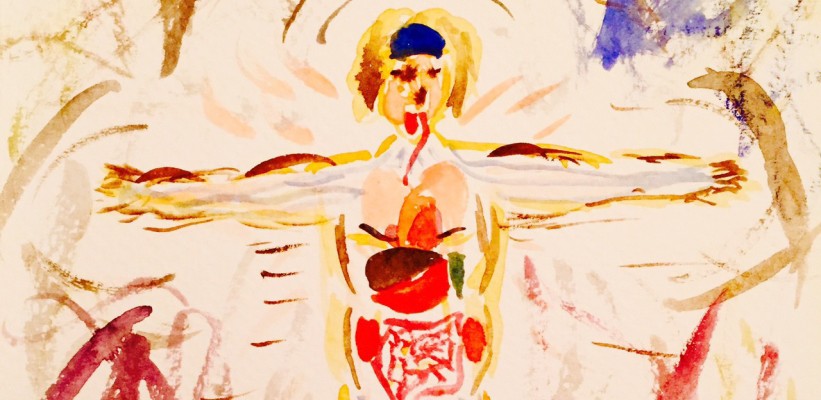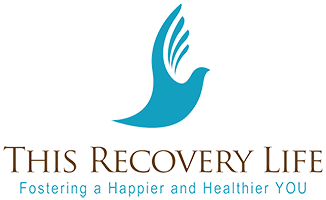
It Doesn’t Affect Me: The Long & Short of Drug and Alcohol Use
It happens over and over again. People use substances “recreationally” on a consistent basis and believe that it does not affect them.
Just yesterday, I had someone who has been smoking marijuana for the past sixteen years beginning in her teens. She stated that everyone else thought that it was a problem for her, but she did not. A little further into the session, she cited that she has been trying to stop since last June (five months now). She has multiple mental health issues that she had been soothing with her marijuana use. This is not uncommon amongst people with mental health issues, many whom don’t even know that they might have them, but are treating their emotions (which are likely symptoms of something bigger like anxiety or depression) with substance use. It ends up that this particular person now has daily bouts of anxiety, depression, trouble concentrating, remembering and a sleeping disorder. She has not been able to stop smoking marijuana for periods longer than two weeks at a time. She continues to smoke, although she is not smoking on a daily basis as she did for years past. She recognized that the fact that she can not stop is, in itself, a problem. She is moving in the right direction.
I worked with one gentleman who fell off a roof six stories up while intoxicated. He survived, instantly developed TBI (Traumatic Brain Injury) and prostate cancer which rendered him impotent. He was (and is) unable to work and disabled for life. After three years of recovery, his doctor told him that he could have a drink again. He went back and forth from having a beer or two to drinking half a bottle of scotch. He thought he could control it since he only got “drunk” when he “wanted to,” which was a few times per week. He decided to show his friends that he didn’t have a problem by going into treatment. In treatment, he focused on the fact that the fact he was “drunk” the day of his accident saved his life. Yes, that could be true, but the opposite is fact. If he were not intoxicated, he would not have climbed to the wrong floor and fallen off the roof.
I have a cousin who eats and drinks like there is no tomorrow. He has this consistent red flush/puffy face/skin. He is extremely overweight and has sleep apnea, forcing him to wear an oxygen mask overnight. The doctors have all warned him of his habits, yet, he will show up at your house for lunch with his own five liter jug of wine. He lives in a village where people are ashamed of their loved one’s realities, and do not talk about their problems. Recovery lives nowhere nearby for him. He is the life of the party and everyone loves him, enabling him to no end. I think of him often.
These may be extreme cases, but they all start out innocently. “I just drink on Fridays”, “I take my medication, so I’m OK”, “It’s the only thing that will calm me down”, “I’m just having fun”, “Everybody else was more messed up than me”, “I just have a few beers”, “Marijuana is not a drug”, “I don’t use needles”, “It helps me wind down”, “I only did it once”, and on and on…
People who are arrested for DWIs, on average, drive one hundred times under the influence before they are arrested. I had one gentleman who was extremely angry that he was mandated to being in a program and continuously complained about the fees that he had to pay and still continued drinking. I reminded him that he was lucky to not have hurt anyone and was not in prison. When asked him about what his family’s reaction to his drinking, he stated that his wife constantly yelled at him when he drank. I asked him if that was a problem and his eyes lit up as he looked down and said, “Yes, that is a problem”. That was his first admission that he had a problem with alcohol, despite that he had incredibly compromised skin and other health issues.
Maybe you stop using for a period of time to “cool off” or “reset”, just to go right back to the same use just as before. Then you feel you don’t have a problem since you were able to stop for x amount of time. Here’s the kicker: If you didn’t or don’t have a problem, then why did you stop in the first place?
There are two kinds of problems regarding alcohol and drug use. Short term problems and long term problems.
Short term problems consist of that one time that you did something and had a negative consequence. It could be as simple as you overslept and were extremely hungover, not able to participate in family activities. It could be that you never ever drink more than one drink, and that one time that your old friend visited, he encouraged you to have another and you had three drinks, resulting in a DWI arrest. Could be you fell and broke your arm. You could wake up in the hospital from alcohol poisoning, or in the psych ward from that drug induced psychosis.
Last year, on a Monday morning in NYC, a woman was found dead on the tracks underneath the platform overhang on a subway station in Chinatown. After the investigation, video cameras showed her slightly stumbling on a Saturday evening at 1AM near Madison Square Garden. She had fallen onto the tracks and her pocket book got caught on the train, dragging her over 30 blocks. The conductor had not seen her and no one else saw it happen since she had walked to the far end of the platform.
Long term problems obviously are not as apparent on a daily basis. They are associated with developing serious health risks. You can go years and years without any “problems” to end up with something unfortunately as common as high blood pressure, depression, anxiety, diabetes, heart disease cancer and on and on. I’m sure that no one thinks their years of cocaine use will burn a hole in the ceiling plate of their mouth, having to graft skin from their legs and having a hugely swollen face after surgery for 4-6 weeks afterwards the first time they tried cocaine.
There is not one part of your body that can not be affected by the use of drugs and alcohol. On the web, there is an abundance of information regarding the effects of drugs and alcohol. Here are two sites that are extremely comprehensive. The National Institute on Drug Abuse as well as The Foundation for a Drug Free World. For an excellent coffee table read, print out Beyond Hangovers.
You don’t have to be an “addict” or “alcoholic” in order to have problems with drugs and alcohol. If you or anyone you know might have an issue, just be there for them and never give up hope. You can get help yourself in order to learn how to best cope with and help them.
Feel free to share this post with your friends and loved ones. Talking about our experiences helps the next person with their issues as well as society reduce stigma. There is no one that does not know someone else that does not have a problem. This does not have to happen to anyone. Love Life Today. THiS ReCoVeRY LiFe.

Recent Comments